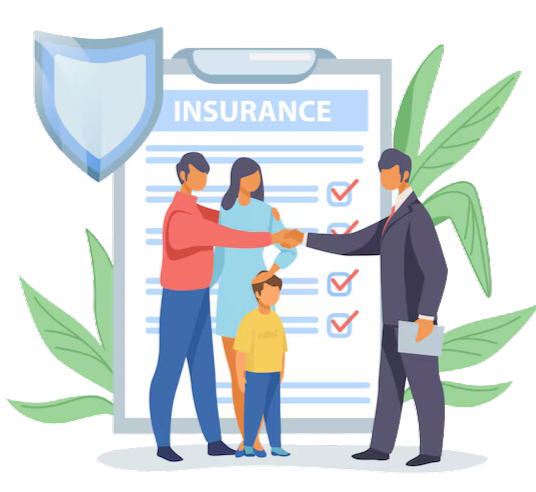Looking Ahead - Protecting Against Risk
- jessicaaqian
- Nov 5, 2024
- 7 min read
Using technology to achieve financial goals and improve wellness
Online Shopping
Online shopping not only offers an abundance of options and convenience at your fingertips, but an increase of opportunities to save money as well. Platforms typically push a variety of vouchers and cashback options in order to grow the attraction and retention of consumers.

Honey
It can be tough to hunt down every promotional voucher so Honey automatically searches for discount vouchers as you shop online and sends out an alert during checkout to apply the discount
Shopback
This is another useful method to increase savings via a cashback system in two ways. You can either purchase a voucher the same value as your Grab order to earn a caseback return or “clicking through” an application before checking out.
Shopee
Shopee has an extremely wide range of products from almost any category and at attractive prices. It has a user-friendly system to gain further discounts and at the foundation of this are Shopee coins. These coins hold a value of 100 Shopee coins to $1 and can be gained mainly via cashback vouchers. In order to effectively utilise the cashback system, one should collect these vouchers which are typically released at stated timings in the day. Coins can then be used to directly offset the cost of a purchase or redeem vouchers which reduce the price as well. Moreover, as Shopee has regular flash sales at 4 hour intervals during the day, it would be possible to stack these savings methods on top of a sale.
iBanking Alerts
It can be easy to lose track of spending when shopping online frequently. Therefore, banking alerts via emails, SMS, or push notifications allows you to skim over the amount spent throughout the day to keep your expenditure in check.
Spotting Scams and teaching others to spot scams
Crime rate in Singapore
Scams are currently one of the most serious categories of crime in Singapore
Total number of scam cases rose by 52.9% to 23,931 cases in 2021, from 15,561 cases in 2020 made up 51.8% of overall crime in 2021, up from 42% in 2020 Total amount cheated for top ten scam types increased almost threefold to $504m in 2021, from $175m in 2020
Common scam types include job scams, phishing scams, e- commerce scams, investment scams and loan scamsScams can cause great financial loss to victims, but crucial to educate elderly or other vulnerable populations in general as they can lose their hard-earned life savings very quickly
Elderly also more vulnerable to scams due to isolation, loneliness, COVID-19 pandemic that makes them susceptible to scammers’ sweet-talking
They are also more trusting of scammers who represent themselves as government officers, and less technologically savvy
Helping myself and others
Set up ScamShield if using an iOS device - screens registered phone numbers known to be used for illegal purposesInstall antivirus software, construct strong passwords, and set up two- factor authentication (2FA)
Explain cybersecurity to others by drawing parallels to real-life situations, such as the importance of safeguarding houses vs. importance of safeguarding digital assetsTeach others about different types of scams and suggest strategies for avoiding scams, such as being careful about who they are contacted by, or being wary of unexpected contact from strangers
Get in touch with Digital Ambassadors (DA) at community clubs or libraries, who can teach you vital cybersecurity skills and cyber literacy Increase your financial literacy, provide social support and increase your knowledge of scam tactics, encourage others not to act on impulses regarding rewards or bargains and be less “kiasu” – all attributes associated with scam evaders
General signs of scams

The offer is too good to be true, or there is a prize or a free gift
You are informed of an urgent problem that needs to be resolved, such as an ongoing investigation or an emergency
Someone you don’t know contacts you unexpectedly, and pressures you to act immediately
Scammers pretend to be from an official organisation
Asked to transfer money quickly or urgently, or to pay in an unusual way such as through electronic vouchers or cash transfer apps
Asked for personal information such as passwords, OTPs, PINs
Signs of scammers on different platforms
Telephone
Pretending to be local government officials calling about an urgent matter
Official local callers do not have a + prefix; international calls will have a + prefix
Official callers will never request for personal or financial information over the phone
Official callers will never send a recorded message
SMS phishing
SMSes will instruct users to click on links – do not click on the links
Verify SMSes received by calling the bank directly on the phone number listed on its official website
Signs of scammer on different platforms
Email
Hover over links in email – look out for URLs that are different from the one typed up in the text of the email
Receipt of unexpected emails, especially those that offer attractive rewards like free gifts
Email contains suspicious attachments
Use of urgent or threatening language, e.g. “Claim this gift within 24 hours or your account will be deactivated”
Domain name in email of sender is misspelt (the part after @)
Domain name in email of sender does not match company or organisation that the email is from (e.g. an email from Paypal being sent from a @gmail.com domain)
The email is poorly written, with poor spelling and grammar
Job scams
Often sent through SMS or apps like WhatsApp, Telegram, etc. offering an attractive job that can be done remotely
Promises high pay for minimal effort
Job description is vague, job offer is unsolicited even though recipient did not apply for a job
Requests personal information and requests recipient to transfer money, requires recipient to make payment or open an account through an unverified app or website in order to start working
Should I get insurance
What is insurance?
Insurance is a form of risk management for any potential financial losses. With a sum of money paid by you regularly (either monthly or yearly), also known as a premium, the insurance company will cover you for any possible accidents, thefts, or damages in return. 42% of Singaporeans aged 20-34 do not own at least one insurance policy. With inadequate insurance coverage, your bills may be hefty, which can severely impact your savings for other urgent priorities. In extreme situations such as total permanent disability or death, the lack of insurance could mean no other financial support to depend on when you are unable to work. Hence, insurance serves as financial protection for you, your dependents, and the assets you value from any financial losses. If you are unsure of your financial needs, it is best to consult a licensed financial advisory representative who can guide you along the process. or visit https://www.lia.org.sg/about-us/member-companies.
Type of Insurance
Health insurance
it covers the exorbitant medical costs from accidents and illnesses that strike us. If you are unable to earn an income due to medical reasons, you can receive monthly pay-outs if the health insurance policy in effect has such features. All Singaporeans and PRs have basic health insurance coverage under Medishield Life which covers part of the costs, and the remainder can be paid in cash or Medisave, a national savings account that all Singaporeans and Permanent Residents have for healthcare purposes. As the coverage of Medishield Life is limited, you may opt to purchase an Integrated Shield Plan (IP) from private insurers to expand on the coverage Medishield Life offers. With an IP, you are covered for stays in private hospitals and higher-class wards in public hospitals and entitled to higher annual claim limits. Careshield Life is another public insurance policy that supports severe disabilities via monthly cash payouts and subsidies.
Life Insurance
This ensures your family will receive a sum of money upon your death. Life insurance products belong in two different categories – unbundled or bundled. Bundled products provide opportunities to earn cash value through investments. Unbundled life insurance is also known as term insurance and is cheaper than bundled products and can only provide coverage for a fixed period. An example of term insurance would be the Dependants’ Protection Scheme. On the other hand, protection from bundled life insurance covers you for a lifetime and accumulates cash value. One example of a bundled life insurance product is whole life insurance, which can be categorised as either non-participating (fixed amount of money upon your death or policy maturation) or participating policy (receive both the fixed amount and potentially added dividends and bonuses from investments. upon death/ maturation).
General Insurance
General insurance essentially covers areas that are not already covered by life insurance. From pet insurance to maid insurance, there is plenty of general insurance covering very specific risks or events. Some types of general insurance are:
Travel insurance: safeguards individuals from risks and unwelcomed events while travelling abroad. It covers financial losses derived from situations such as baggage and flight delays and loss of items. Premiums are typically a one- time payment.
Motor insurance: it is illegal for Singaporeans to drive without motor insurance. Some features of motor insurance include coverage for damages to your car and medical bills incurred from a traffic accident.
Mental Health Insurance
As mental health awareness grows, there is a growing pool of mental health insurance policies offered in Singapore. In 2019, AIA was the first in Singapore to offer coverage for mental health treatment and support for conditions such as major depressive disorder, bipolar disorder, and schizophrenia, to name a few. Employers can consider the policies introduced by Chubb and Mercer & Singlife, which are targeted to support employees’ mental wellness.
Medishield Life can be used to cover part of the costs of inpatient psychiatric treatments. Some IPs also offer coverage for psychiatric hospitalisation as well as treatments after hospital discharge.
Please see: AIA Beyond Critical Care, Chubb’s Work From Home Insurance Plan, Mercer & Singlife’s Mental Wellness Plan.
Things to consider when buying insurance
Engage with a financial advisory (FÅ) representative
A FA representative can administer a financial needs analysis with you to help you identify your specific goals and gaps in your financial protection. With this analysis, they can recommend you suitable products in consideration of your needs and personal circumstances. You will also gain better knowledge and insight into your financial objectives and in turn, decide on policies best aligned to fulfil your needs.
Compare and evaluate product across different insurance companies
Different insurance companies may differ in premium cost, features, and extent of coverage. Examine policy terms and conditions and clarify if they have any exclusions; this is especially important if you have any illnesses that you need to receive coverage for. There are websites available that allow you to search and compare policies across several insurance companies.
Choose policies you can afford
While features and extent of coverage are equally important to consider, do thorough research and buy insurance policies that adequately cover your needs with premiums you can comfortably afford in the long run. With expensive premiums, the policy can be lapsed or terminated if premiums are not paid on time.









Comments